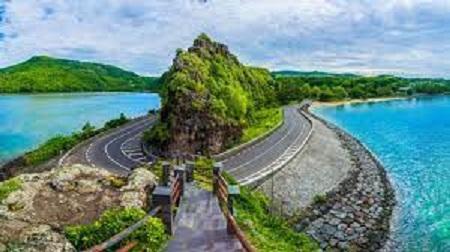Africa-Press – Mauritius. From its hesitant beginnings in the 1960s (14,000 tourists in 1964) Mauritian tourism has progressed in leaps and bounds to become a major earner of foreign exchange, second only to the EPZ.
It brought in a revenue of Rs 13 253 m in the 3rd quarter of 2003. Tourist arrivals have increased steadily, reading 500 846 in September last year. Tourism is evidently an industry which is here to stay. Since the early days, successive governments have rightly insisted on the fact that Mauri-tian tourism must be selective.
In fact, owing to the great distance we are from Europe, which provides most of our tourists, there is an inevitable process of selection at source : only the richer ones will make it this far? And only the mega-rich will choose our five-star hotels? This is exactly what Mauritius needs and has always aimed at: a relatively small number of well-to-do tourists with plenty of money to spend.
No question then of mass-tourism that has scarred many coastlines like Spain with rows of multi-storeyed hotels and not a tree in sight?(although we must admit we have a few such examples, fortunately on a fairly small scale, in places like Grand-Bay and Flic-en-Flac).
To return to our main theme, the strongest and most obvious argument against mass-tourism is the tiny size of Mauritius. Small islands, especially when they are as overpopulated as we are, have a very fragile environment needing constant care and protection.
The natural beauty of the coastline, the marine life in the lagoons, the very sand on the beaches are the things that make tourism work and they would be the first victims of mass-tourism.
Moreover, a huge influx of visitors would cause social tensions ? local people already complain about limited access to the best beaches? The vast majority of tourists who come here seek a lazy holiday by the sea: luxurious and beautiful surroundings, good food, excellent service and water sports for the more active.
This is what the local hotel industry provides, evidently with great and ever-growing success. We hear from time to time of the need to diversify into eco-tourism.
While Mauritius has inland areas of great natural beauty, which could be thus developed, we wonder how many tourists are interested enough in the fate of the Echo Parakeet to make a trip into what is left of our native forests.
It does not really have sufficient resources for large-scale ecotourism and should concentrate on making the most of its two major attributes, a beautiful coastline and a friendly and adaptable population.
Both play a crucial role in making a holiday in Mauritius unforgettable. To conclude, we might say that so far tourism has brought great advantages to the country in terms of employment and foreign exchange without enacting too many difficulties.
There are quite serious environmental problems that have cropped up such as erosion of beaches and damage to the coral reefs but these can hopefully be reversed if right actions are taken.
An enlightened policy on the part of present and future governments will ensure that tourism continues to play a major role in the development of Mauritius.
For More News And Analysis About Mauritius Follow Africa-Press







